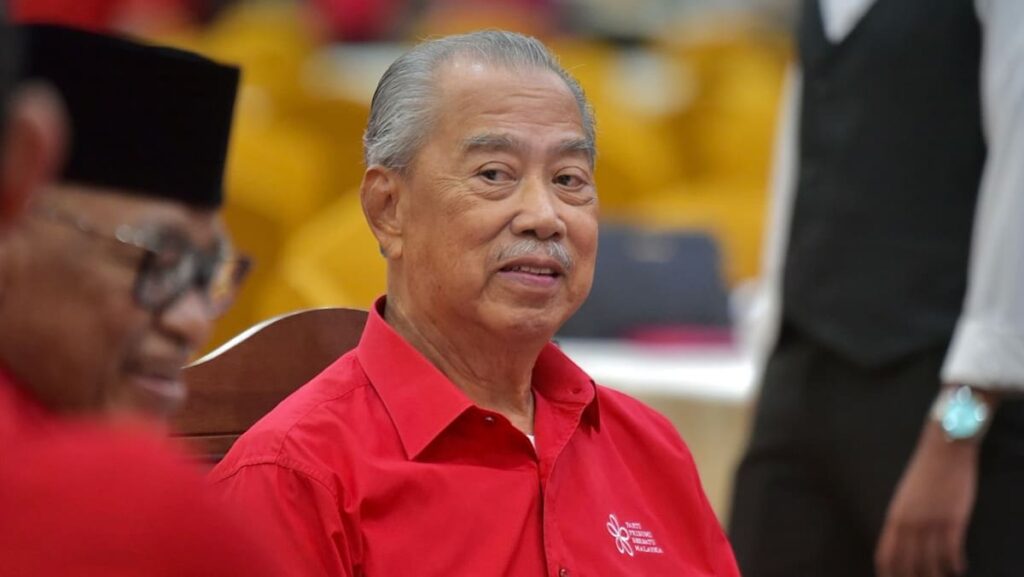Since Wan Saiful’s sacking, tensions within Bersatu have continued to build up.
Bersatu sources told CNA that 16 of the party’s 25 elected MPs had signed a declaration to oppose the actions by the Bersatu disciplinary board, which party sources said is dominated by Muhyiddin’s allies.
Saifuddin Abdullah, who was one of the MPs that signed the document and has publicly called on Muhyiddin to quickly initiate a peaceful handover of power in the party, told CNA that Bersatu’s supreme council had decided last week that rival groups have “agreed to a cease fire”. He declined further comment.
BERSATU’S BRAND
Bersatu is very much a splinter party of the long-established United Malays National Organisation, and was born out of the 1Malaysia Development Bhd (1MDB) scandal where billions were siphoned out of the state-linked fund.
Muhyiddin was sacked as deputy premier in 2015 by his former boss, now-jailed Najib Razak, for questioning Najib’s handling of the scandal.
Muhyiddin then joined forces with Mahathir to group defectors from UMNO and form Bersatu.
The party made a pact with the opposition alliance at the time and succeeded in defeating the UMNO-led Barisan Nasional coalition in the historic general election in 2018.
But Bersatu’s bid to offer itself as an alternative to UMNO struggled to find traction in the Malay community, which is now largely divided in their support between UMNO and PAS.
In the 2022 general election, Bersatu secured 25 parliamentary seats and the victories were largely because of its election pact with PAS, which currently has 43 seats in the 222-member lower house.
In a series of by-elections since the November 2022 general election, Bersatu failed to secure victories for seats that fell vacant following the passing of incumbent candidates.
The last defeat in September 2024 was for the Mahkota state assembly seat in Johor and it marked the third straight electoral loss for Muhyiddin’s party.
Ibrahim Suffian, chief of opinion pollster Merdeka Centre, described the headwinds buffeting Bersatu as “the most serious facing the party and also Muhyiddin”.
“The Bersatu brand isn’t very strong. It failed to win control of any state (government) in the last election to establish a base,” he said, adding that “the party’s prospects in the next general election don’t look good”.
POLITICAL WARHORSE
Muhyiddin may have been less in the public eye than two-time former premier Mahathir and current PM Anwar Ibrahim, but he has nonetheless been a serious and influential player in the turbulent world of Malaysian politics.
He joined the government service after graduating from Universiti Malaya in 1971 with honours in economics and Malay studies.
Veteran UMNO politicians noted that Muhyiddin quickly caught the eye of then Johor chief minister Othman Saat, a powerful party warlord who grafted the young civil servant as his senior political aide.
Muhyiddin went on to become Johor’s chief minister before being appointed to the federal Cabinet in 1995.
In the early 2000s, during the tail-end of Mahathir’s first stint as premier, Muhyiddin became a firm supporter of then deputy premier Abdullah Ahmad Badawi.
He was widely seen as the politician most likely to take over the Number 2 position in government when Mahathir stepped down in favour of Abdullah.
But that did not happen.
When Abdullah assumed the premiership in November 2003, he came under strong public pressure from Mahathir to appoint Najib as his deputy.
A dejected Muhyiddin bided his time and when Malaysians denied the ruling Barisan Nasional coalition a two-thirds majority for the first time in the 2008 general election, Muhyiddin publicly called for Abdullah to take responsibility for the defeat and resign.
https://www.channelnewsasia.com/asia/malaysia-bersatu-muhyiddin-yassin-politics-5459846


